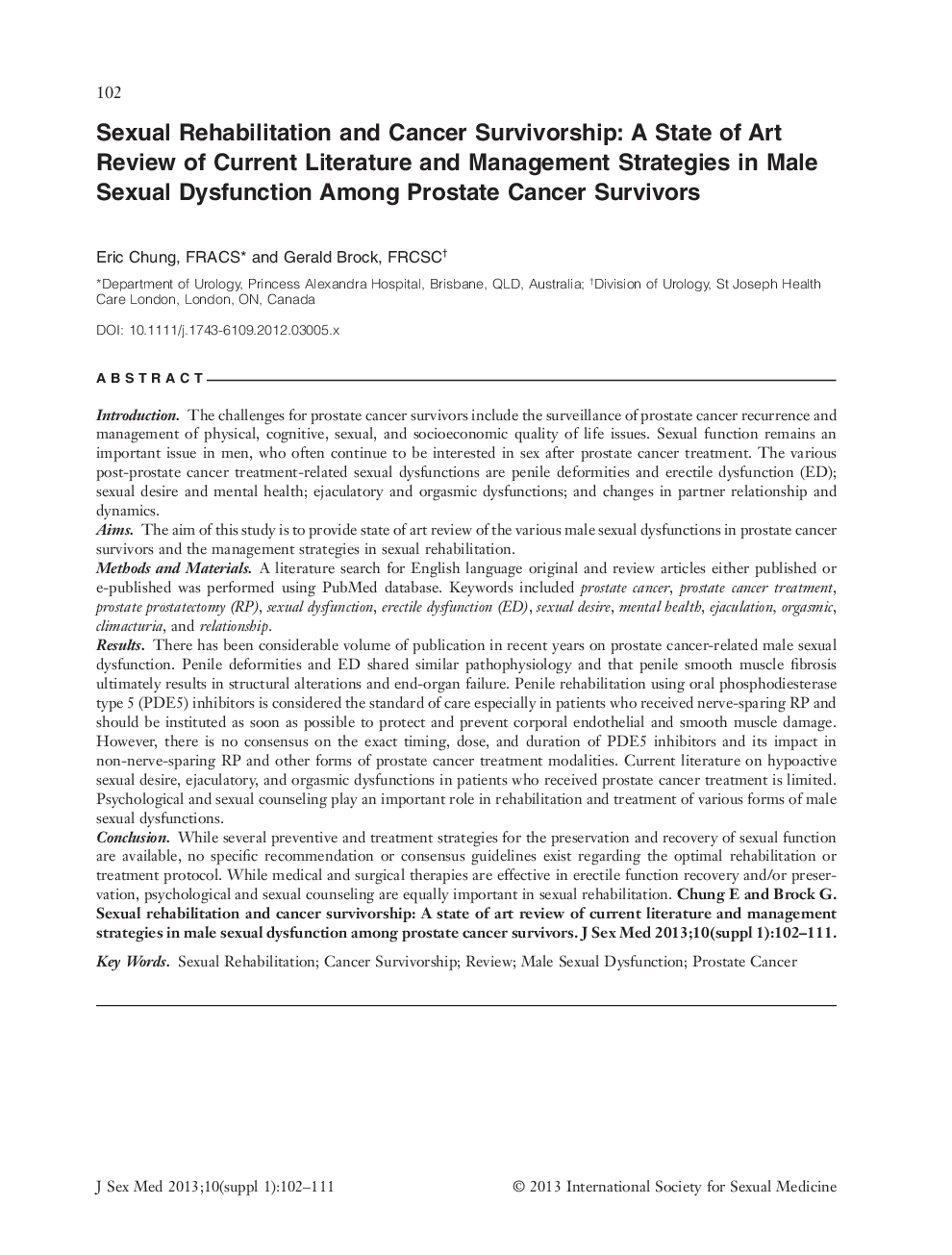| Article ID | Journal | Published Year | Pages | File Type |
|---|---|---|---|---|
| 4270534 | The Journal of Sexual Medicine | 2013 | 10 Pages |
ABSTRACTIntroductionThe challenges for prostate cancer survivors include the surveillance of prostate cancer recurrence and management of physical, cognitive, sexual, and socioeconomic quality of life issues. Sexual function remains an important issue in men, who often continue to be interested in sex after prostate cancer treatment. The various post‐prostate cancer treatment‐related sexual dysfunctions are penile deformities and erectile dysfunction (ED); sexual desire and mental health; ejaculatory and orgasmic dysfunctions; and changes in partner relationship and dynamics.AimsThe aim of this study is to provide state of art review of the various male sexual dysfunctions in prostate cancer survivors and the management strategies in sexual rehabilitation.Methods and MaterialsA literature search for English language original and review articles either published or e‐published was performed using PubMed database. Keywords included prostate cancer, prostate cancer treatment, prostate prostatectomy (RP), sexual dysfunction, erectile dysfunction (ED), sexual desire, mental health, ejaculation, orgasmic, climacturia, and relationship.ResultsThere has been considerable volume of publication in recent years on prostate cancer‐related male sexual dysfunction. Penile deformities and ED shared similar pathophysiology and that penile smooth muscle fibrosis ultimately results in structural alterations and end‐organ failure. Penile rehabilitation using oral phosphodiesterase type 5 (PDE5) inhibitors is considered the standard of care especially in patients who received nerve‐sparing RP and should be instituted as soon as possible to protect and prevent corporal endothelial and smooth muscle damage. However, there is no consensus on the exact timing, dose, and duration of PDE5 inhibitors and its impact in non‐nerve‐sparing RP and other forms of prostate cancer treatment modalities. Current literature on hypoactive sexual desire, ejaculatory, and orgasmic dysfunctions in patients who received prostate cancer treatment is limited. Psychological and sexual counseling play an important role in rehabilitation and treatment of various forms of male sexual dysfunctions.ConclusionWhile several preventive and treatment strategies for the preservation and recovery of sexual function are available, no specific recommendation or consensus guidelines exist regarding the optimal rehabilitation or treatment protocol. While medical and surgical therapies are effective in erectile function recovery and/or preservation, psychological and sexual counseling are equally important in sexual rehabilitation. Chung E and Brock G. Sexual rehabilitation and cancer survivorship: A state of art review of current literature and management strategies in male sexual dysfunction among prostate cancer survivors. J Sex Med 2013;10(suppl 1):102–111.
